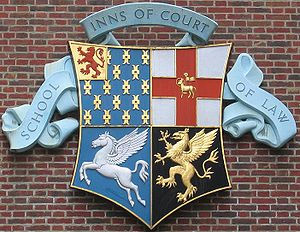Instructing A Sole Practising Barrister

A Sole Practising Barrister does exactly what any other barrister does. In fact, the term “sole practising barrister”, which is authorised by the Bar Council, is misleading and inaccurate, because every barrister in private practise in England and Wales is a sole practising barrister. This is because the rules of the Bar require ALL barristers in private practice at the Bar in England and Wales to practise in a self-employed capacity and not in any form of partnership or company.
Most barristers practise from a set of chambers that has other barristers as members. This is done purely as a matter of administrative convenience, because each barrister thereby hands over the management of his or her practice to the operational personnel of his/her set of chambers. However, each barrister in a set of chambers is a separate legal and professional entity. The term “sole practising barrister” has come to be used to describe those barristers who, for whatever reason, have decided not to practise in a set of chambers with other barristers as members. The term is therefore a misnomer, but it is difficult if not impossible to think of a more accurate term.
Nevertheless, in both practical and professional terms there is absolutely no difference whatsoever between a barrister who practises in a set of chambers with other barristers, and one who does not.
Some “sole practising barristers” have a clerk who manages their practice. Some do not. When a barrister chooses to practise as a sole practising barrister (ie entirely by themselves in their own chambers) he or she can either do so with or without a clerk. As a sole practising barrister the need for a clerk in reality ceases to exist, because there is by definition only one barrister to manage, and that can be done by the barrister. Nevertheless, it is a matter of choice. Some sole practising barristers prefer not to deal with the day to day management of their own practice. Others have decided to take the management of their practice entirely into their own hands and so do not have a clerk.
In John’s case, he manages his own practice completely. This means that he controls his own diary, personally deals with solicitors who contact him, manages his own fees, and is in complete control of the marketing and presentation of his practice. This makes dealing with John a very direct and personalised experience.
Becoming a sole practising barrister is a decision that is dictated by many different factors, both professional and personal. There are benefits to practising and operating as a sole practising barrister with no clerk. The costs of practice are much reduced, because the sole practising barrister will not have to make a substantial contribution from his or her own fees towards the costs of a large set of chambers. These savings can be passed on to clients through lower fees. Also, there tends to be a closer professional relationship between a sole practising barrister and the solicitors who instruct him or her, because there are no clerks to “filter” the relationship or interfere with it.
In 2006, there were over 350 sole practising barristers and approximately 15 sole practising QCs in England and Wales.

